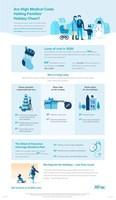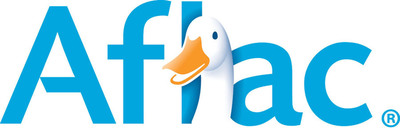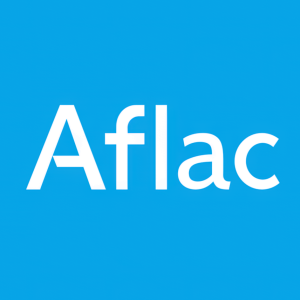Rising Medical Costs in COVID-19 Era Threaten Holiday Spending
The 2020 Aflac Health Care Issues Survey revealed that rising medical costs amid the COVID-19 pandemic are forcing American families to prioritize health over holiday spending. Nearly 71% of families faced sacrifices during the holiday season due to medical expenses, with 23% spending less on gifts. The survey showed that 70% of families with children had significant out-of-pocket costs, rising from previous years, with 64% spending over $500. The ongoing financial burden raises concerns about health care coverage decisions, with many families expressing regret over their choices.
- Aflac continues to highlight the importance of supplemental insurance amid rising health care costs, which may increase demand for their services.
- The survey underscores Aflac's role in providing financial protection for unexpected medical expenses, aligning with consumer needs.
- 71% of families had to make sacrifices during the holiday season due to high medical costs, indicating financial strain.
- 64% of families reported spending over $500 in out-of-pocket medical expenses, highlighting increasing financial burdens.
Insights
Analyzing...
COLUMBUS, Ga., Nov. 23, 2020 /PRNewswire/ -- Despite pandemic economic hardships, National Retail Federation forecasting shows consumers will spend just under
The second annual national online survey of 1,138 U.S. adults looked at how medical costs over the last two years have affected Americans during the holiday season and year-round, as well as the rate of hospital visits, regrets related to health care coverage decisions and COVID-19's ramifications.
The ongoing rise in health care costs is hitting American families hard, and the challenges posed by the global health crisis are an aggravating factor. Among families with children under 18 in their household who visited the hospital in the past two years,
"As a mother of three and a businesswoman, I have seen firsthand how the pandemic has shaped everything from how and where kids learn to how and where employees work," said Stephanie Shields, senior vice president of Broker Sales at Aflac. "In a year ripe with change, one constant remains: High medical costs continue disrupting American families, many of whom may be unprepared for the out-of-pocket expenses health insurance doesn't cover."
Because of these financial difficulties, many families may find it difficult to fill in their loved ones' stockings this holiday season. Within the past two years, nearly 3 in 4 (
- Fewer presents underneath the tree — More than 1 in 5 said they spent less on holiday gifts or went without giving them altogether (
23% ), decided against purchasing a gift for a loved one (21% ) and reduced their overall holiday spending (21% ). - Risky debt on the rooftop — Nearly one-third (
28% ) said they relied on a credit card, and21% borrowed money from a friend or family member. - Home alone for the holidays — Over 1 in 5 said they canceled events (
23% ) and put a stop to travel plans to see family or friends (21% ).
In addition, over one-third of families (
"It's natural for people to have regrets after making decisions about their medical plan, which can impact their future," said Shields. "While no one could have foreseen what's occurred in 2020, it is essential to learn from the past and educate yourself on the role health care benefits like supplemental insurance can play in helping with the expenses health insurance doesn't cover. Doing so can lead to greater confidence in the coverage you choose and, hopefully, fewer regrets and financial woes, meaning families can focus on getting and staying well."
COVID-19's Impact
At the time of the survey,
The top-two conditions surveyed families said they have encountered are diabetes (
Interestingly, over 3 in 4 (
Perhaps not surprising, for those who said they or a household member was diagnosed with or received treatment for COVID-19,
Survey findings for all respondents, not just families with children, are also available and held steady across all groups. Learn more about the financial effects of health care issues and how Aflac can help with the expenses health insurance doesn't cover at Aflac.com/HCI.
Methodology
The 2020 Aflac Health Care Issues Survey is a national online survey of 1,138 U.S. adults fielded in August 2020 by Hill+Knowlton Strategies. To learn more about the survey findings, visit Aflac.com/HCI.
About Aflac Incorporated
Aflac Incorporated (NYSE: AFL) is a Fortune 500 company, helping provide protection to more than 50 million people through its subsidiaries in Japan and the U.S., where it is a leading supplemental insurer by paying cash fast when policyholders get sick or injured. For more than six decades, insurance policies of Aflac Incorporated's subsidiaries have given policyholders the opportunity to focus on recovery, not financial stress. Aflac Life Insurance Japan is the leading provider of medical and cancer insurance in Japan, where it insures 1 in 4 households. Fortune magazine recognized Aflac as one of the 100 Best Companies to Work for in America for 20 consecutive years. For 14 consecutive years, Aflac has been recognized by Ethisphere as one of the World's Most Ethical Companies. In 2020, Fortune included Aflac Incorporated on its list of World's Most Admired Companies for the 19th time, and Bloomberg added Aflac Incorporated to its Gender-Equality Index, which tracks the financial performance of public companies committed to supporting gender equality through policy development, representation and transparency. To learn how to get help with expenses health insurance doesn't cover, get to know us at Aflac.com.
Aflac | Aflac New York | WWHQ | 1932 Wynnton Road | Columbus, GA 31999.
Media contact: Jon Sullivan, 706.573.7610 or jsullivan@aflac.com
Analyst and investor contact: David A. Young, 706.596.3264 or dyoung@aflac.com
![]() View original content to download multimedia:http://www.prnewswire.com/news-releases/rising-medical-costs-in-covid-19-era-threaten-holiday-spending-301178560.html
View original content to download multimedia:http://www.prnewswire.com/news-releases/rising-medical-costs-in-covid-19-era-threaten-holiday-spending-301178560.html
SOURCE Aflac Incorporated









